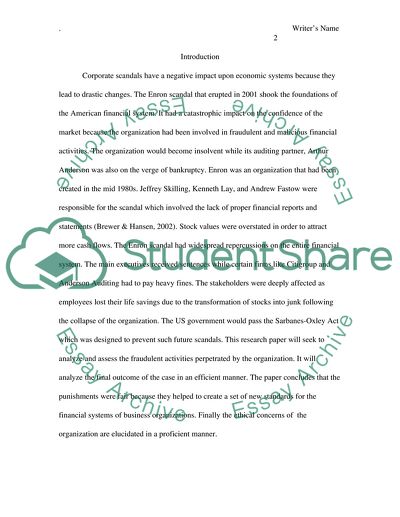Cite this document
(“Enron Scandal Research Paper Example | Topics and Well Written Essays - 3000 words”, n.d.)
Retrieved from https://studentshare.org/history/1574917-the-enron-case-enron-scandal-assignment-research-paper
Retrieved from https://studentshare.org/history/1574917-the-enron-case-enron-scandal-assignment-research-paper
(Enron Scandal Research Paper Example | Topics and Well Written Essays - 3000 Words)
https://studentshare.org/history/1574917-the-enron-case-enron-scandal-assignment-research-paper.
https://studentshare.org/history/1574917-the-enron-case-enron-scandal-assignment-research-paper.
“Enron Scandal Research Paper Example | Topics and Well Written Essays - 3000 Words”, n.d. https://studentshare.org/history/1574917-the-enron-case-enron-scandal-assignment-research-paper.


